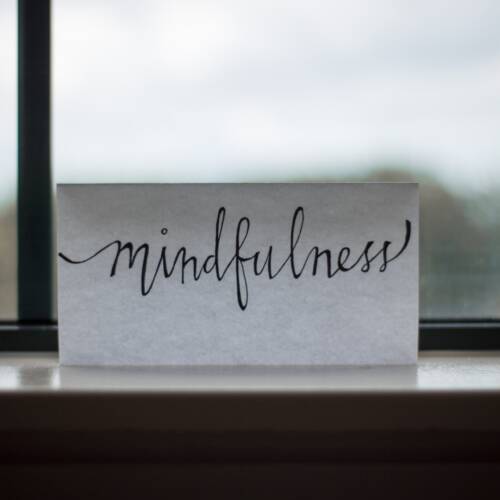
New Year’s Resolutions: 5 Ways to Make Your ‘Soul-Goals’
01 Jan 2020It’s often on the eve of momentous milestones, that the feeling of distant alarm bells may begin to alert you. Like a niggly, nagging voice in the back of your head. It draws attention to your conscience, as though it’s wondering if you might have the slightest moment to simply pause. To breathe. To reflect. To make peace with the feelings of uncertainty about that which awaits. Of course, in the midst of this, out come the wonderful (dreaded), “So – What’s YOUR New Year’s Resolution?!!” conversations.
Reports suggest that 64% of our New Year resolutions will be forgotten by the end of January 2020. It’s also usually at the end of January that I witness a stream of tweets, “new year, same me”, and when things start to go a little pear-shaped.
Regardless, most of us at this time of year will inevitably fall into bouts of self-reflection. At this point, I usually dedicate a portion of my time to evaluate where I am – where I’ve come from, and where I am headed. But what I’ve found most effective in the past few years, is to reflect from a more wholesome soul-lens. So, I’ll be sharing five tips on how to make more effective soul goals for the coming year and decade!
5) Look into Your Soul Mirror
Self-accounting, self-awareness, or mindfulness is renowned in most religious, and increasingly, secular traditions. In the dynamics of the 2020 world, introspect is vital, as our society inherently leans towards measuring ‘progress’ by gauging our physical and material milestones or possessions: school, degree(s), job, wealth, a car, travel, marriage, children. It’s far too easy to get caught into cycles of never-ending conformist tick-boxes. Whilst having foreseeable goals and finally achieving them has its own satisfaction and value, the truth is – the associated feelings of adequacy are mostly momentary, and fleeting feelings aren’t able to provide us with the long-lasting inner peace we hope for.
Why? Because these lists and all they entail count as possessions; a part and parcel of this worldly life. They are gifts of divine decree, only to manifest as blessings or trials. Peace on the other hand, is a feeling buried in the midst of both our blessings and trials. Finding it is a movement – a journey which connects us back to ourselves, and God.
Keeping it real with our own Self, engaging in mental stillness, and to really discover and understand ourselves, helps aid our journeys towards inner peace. We have to know how to be alone with our own thoughts; the raw, authentic us, and our personal strengths and weaknesses alike. In other words, holding a mirror to our soul. Who am I truly beneath my image? Am I happy? Am I anxious? Am I in balance? Why am I feeling what I’m feeling? And importantly, having the courage to answer plainly, simply and truthfully to oneself.
4) Identify ‘You’ – Who are You Really?
Identifying and unravelling the multiple layers which comprise who we are is another valuable step in determining our goals. To name a few – we have our spiritual selves, our social selves, our career selves, our physical bodily selves, our material lives – and the routines and habits we have made for ourselves depending on which parts of our selves we have prioritised.
For example, if fate had it that this year has been a life-changing one for my career self, it would be a good starting step to question whether my decisions added purpose to my overall soul’s vision for life? Did I neglect any other aspect of my life as a result? Or when considering our spiritual selves, a good question to begin with is whether there are actions you have wanted to change this year, and if there’s been transformations for the better? What about those parts of your life that may have digressed? Ultimately, what are the gains and losses, in each of these elements of the Self, that count for the balance of my afterlife as well as my worldly life?
Making peace with our multiple identities, helps draw attention to the various parts of us that might be calling out, yearning for change.
One activity to aid this, is to draw a mind map, or write a list, outlining our different ‘selves’, and assessing how much change or progress we feel have achieved in each of those aspects of our lives in the past year – or even past decade, and where we hope to go with each of those elements, in the coming year.
3) Celebrate Your Journey
Assessment from a soul lens means taking responsibility to analyse the journey through the various chapters of our lives that determine our destinies. For all goodness and blessings come straight from God, so they can’t be acclaimed as our victories in their own right. All that is a test, has also come immediately from God. Whilst physical losses and gains define much of the dynamics within our lives – there’s more to who we are. What matters at the heart of it, is the question, and the honest answers, behind who I really am behind it all. How did I respond to my blessings and trials? Who was the soul throughout this process?
The difficult and sometimes beautifully messy process of character-building and soul-aligning that comprises our ‘major milestones’ is really what defines our soul value and currency. This includes the ups and downs. The moments of anxiety. The moments of ease after hardship. The blessings behind the tests which makes you feel grateful.
If you only count your physical blessings, or even attribute physical objects to your own success – the truth is, it’s not a complete form of gratitude and is therefore not fulfilling. True gratitude lies in being able to see the value, meaning, and processes of growth through it all – to recognise the good, bad, and ugly, in context of God’s supreme Will.
2) Make Peace with Now
More than ever, this is a time to be present with the now. Change is something that’s only natural to feel uneasy about. It derives from the feeling of not knowing what may come. But this is our moment of placing trust.
A lot of the time, we may spend time worrying over what we have little control over. A lot of the times, our choices aren’t really between what we perceive as option A or B… it’s more often making a choice between A) trusting God/His Processes, and B) trusting what we think we know about our lives. God is the only one who is both All Knowing and All Powerful – we are neither. Peace is therefore in letting go of our own affairs due to an acknowledgement of our limitations, in exchange for actively trusting in Him and His limitless nature. It’s doing the work you can, whilst waiting for appropriate outcomes. It’s knowing, and genuinely acknowledging, that when the combination of God’s mercy, knowledge, and power graces your life with what is best for you – it is far superior to what you could have ever planned for yourself.
Being present with the now enables you to focus on your own soul-work, instead of falling into an abyss of transient, passing, fluctuating fears and hopes.
1) Adopt the Soul-goal Mindset
Soul-searching stuff is never easy. It exposes us to our deepest vulnerabilities, fears and anxieties. Because it’s about being honest with ourselves, so we may project the most honest version of ourselves into the world we live in, as well as God. The above mental processes might take more time than just scribbling a resolution down at 23:58 on New Years’ Eve, but the more investment you make into how you perceive your own soul value, the greater the impact on our journeys towards ultimately being at peace.
However, if we don’t simultaneously acknowledge our vast and varied strengths, our survival through our tests, and celebrate our successes in a way that is wholesome – resolutions might end up making us feel more inadequate, than a refreshing feeling of wanting to make positive change. It all makes a world of difference when you acknowledge you are worth the positive changes you wish to make for yourself – your soul is worth it.
Give yourself the same love and investment you offer to the people around you, and working on yourself will soon enough become an act of self-love, as opposed to self-resentment or something you would rather procrastinate with than address.
“This is because Allah has never changed a favour which He has conferred upon a people until they change their own condition; and because Allah is Hearing, Knowing.”
(Surah Anfal; verse 53) – the Holy Qur’an.














